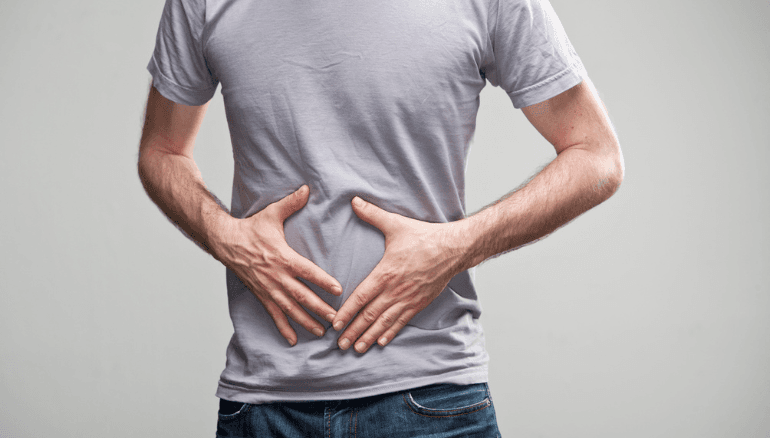You might spend plenty of time on the porcelain throne but how much attention are you really paying to your bowel habits, what they mean and what you can do to better your health?
It’s time to level up from ‘pull my finger’ and get stuck into the important toilet talk.
Here’s what you should know about your bowels.
Whether your bowel habits are normal
Your bowel is the part of your digestive system between your stomach and your anus. It’s where the things you eat and drink are broken down and absorbed into your body.
Your poo can be a good indicator of bowel health but what’s ‘normal’ is a little different for everyone. However, you should be able to do soft, well-formed poo anywhere from three times a week to three times a day.
The Bristol Stool Chart is an easy way to find out what your poo should look like, and what it might mean if they’re a different size, shape or colour than normal.
What your risk of developing bowel cancer is
Australia has one of the highest rates of bowel cancer diagnosis in the world. It’s the third-most diagnosed cancer in Australia and 1 in 13 Australian men develop the disease in their lifetime.
It’s also Australia’s second deadliest cancer but almost 99% of bowel cancer cases can be treated successfully when detected early.
There is a range of factors that influence your risk of developing bowel cancer. Some of them we can’t change — such as age, family history, hereditary conditions, genetic mutations and personal history — but understanding whether these factors affect you can mean additional screening or surveillance.
Chat to your GP about your concerns.
What you can change to reduce your risk
There are risk factors for bowel cancer that you can change.
Up to 34% of bowel cancer cases may be prevented by a healthy lifestyle[1], which means maintaining a healthy body weight, never smoking (or quitting if you do), getting the recommended amount of exercise, limiting alcohol intake and eating well.
The latter means less red meat and processed meat, and getting adequate dietary fibre through whole grains, legumes, vegetables and fruit. Consuming enough dairy is also associated with a decreased risk of bowel cancer[2].
What changes to look out for
If you’ve been experiencing any of these symptoms for two weeks or more, talk to your GP as soon as possible. It might help to keep a symptom diary or take notes of what you’ve been experiencing and for how long.
Whether you’re eligible for free screening
Australians aged 50-74 receive a free bowel cancer screening test in the mail every two years. It can detect tiny amounts of blood in your poo that can be a sign of bowel cancer.
It’s a simple test that’s done in the privacy of your own home, so don’t put it off. It involves collecting two separate, very small poo samples and sending them to a laboratory for analysis. The results are then sent back to you and your GP (if you nominate them).
A positive result means blood in poo has been detected. It does not necessarily mean bowel cancer is present but does require further investigation by a GP and a referral for colonoscopy within 30 days.
Learn more about the National Bowel Cancer Screening Program here.











